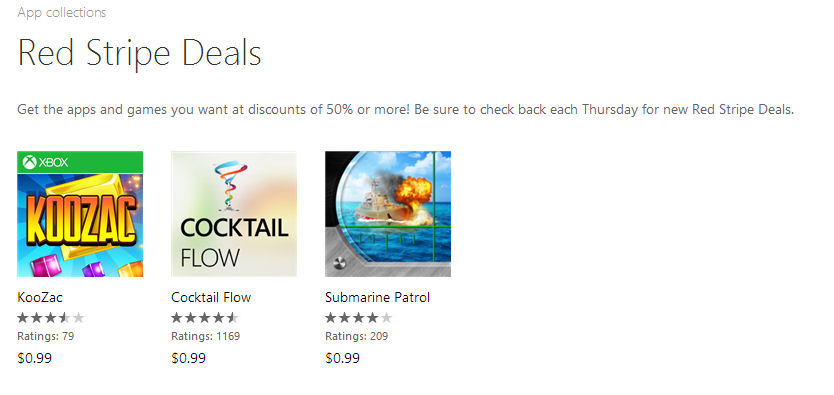Operator billing is important because it makes it possible for people who do not have easy access to a credit card to buy app. The exact impact varies from market to market, but Brix notes that the average increase in the purchase of paid apps is between 600% and 800% in emerging markets and around 300% in more developed market.
Increasing the number of markets where operator billing is available is probably the single most important thing Microsoft can do to increase revenue for developers, but progress has been slow. The Windows Phone Store is ahead of Google Play in this area, but is a long way behind the Nokia Store (Symbian and Series 40) which support operator billing for 145 operators in 52 countries.

The post also revels some information on the success of the recently launched Red Stripe Deals initiative, which sees the price of one app, one indie game and one Xbox Live title reduced by 50% for a week. Thus far there has been average revenue increase of 400% for developer featured in the week of promotion, and a further revenue lift for up to 4 weeks following the promotion as a result of increased exposure and improved app rankings.
Brix also revisits some of the recent changes to the Windows Phone Dev Center, including the improvements to app submission work flow (cancelling submissions, automatic manipulation of screenshots, ability to review a submission), and notes that app certification time has been reduced from an average of 5 business days to less than 3 business days.
Further improvements are on the way, including the launch, this week, of a pilot program that will notify developer of planned promotional placements within the app store (i.e. placement in spotlight and other sections) a few days ahead of time, thus allowing them to integrate such opportunities with their own marketing campaigns.
Read more on the Windows Phone Developer Blog.
